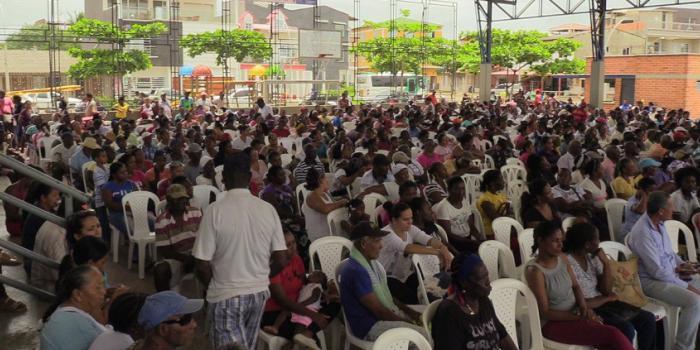
The Day of Memory and Solidarity with the Victims was commemorated In Turbo
In this municipality north of Urabá, there are 77,568 victims, subject to attention, in the most recent report of February of the current date, who gathered to commemorate the Day of Remembrance and Solidarity with the Victims.

In La Bombonera Park in Turbo, Antioquia, more than 500 survivors of armed conflict gathered to commemorate the Day of Memory and Solidarity with the Victims of armed conflict.
This commemoration had the support and accompaniment of the municipal government of Turbo, among other entities such as: the Korean Cooperation Agency (Koica), the effective participation table, leaders of organizations of victims, the National Navy and the public forces stationed in the town.
The event was attended by Turbo collective reparation subjects as special guests, leaders and leaders of Pueblo Bello, El Tres, Nueva Colonia, Paquemás, Tulapas, who in addition to receiving recognition from the municipal administration for their work, enjoyed presentations artistic, symbolic acts and traditional rituals, such as the "Alabaos".
"This commemoration gives the victims one more space to see that the State does remember us, that we are present, that we are taken into account and that they are working for us, that is why several village leaders have come together to meet, to share, to watch over our rights, but also to thank for the work they have done for us", said Ramón García, member of the Pueblo Bello Boosting Committee.
Among the activities carried out, which culminated around noon, a minute of silence was requested in honor of the murdered leaders and white candles were held as a symbol of hope and peace.
"With this activity, the commemorative actions that have already taken place in North, South of Urabá and Darién Choco are consolidated, where we have made a presence, reminding the survivors that we continue to work with and for them, towards the fulfillment of all measures of integral reparation", said Elizabeth Granada Ríos, territorial director of the Unit for Victims in Urabá-Darién.






